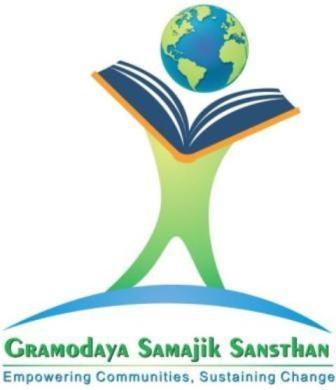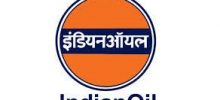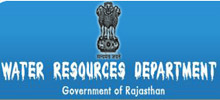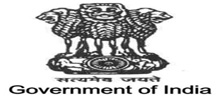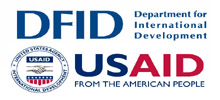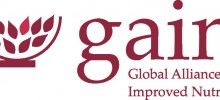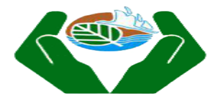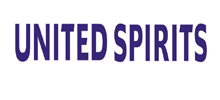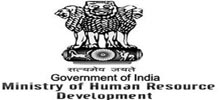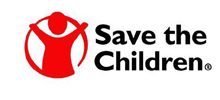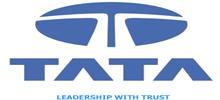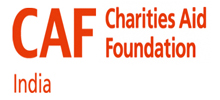Health is one of the thematic are of GSS. Conducting the health programs GSS believes in strengthening of accessibility to government health services by increasing health seeking behavior amongst community and sensitization of service providers at entire level. For this aim GSS has been organizing different field level programs especially for children and women as reproductive child health program, training programs as training of adolescents on sex and sexuality and differing advocacy program for district health planning, sexual rights of adolescents through rights based development approach.
Telemedicine:
Gramodaya Samajik Sansthan is first NGO in Rajasthan to initiate Telemedicine Project for rural community in outskirt of Rajasthan. GSS started 3 Telemedicine centre in Chaksu (Jaipur), Unniara (Tonk) and Daulatpura (Dausa) with technical support from Mahatma Gandhi Hospital. Telemedicine centers are covering a total population of 60,000 for community medical service at their door step availability.
Services in Telemedicine Centre:
- Daily OPD with Video conference from medical experts
- Primary health services
- Diagnosis and investigation
- Ambulance referral
- Mini Pharmacy
Eye Care: Vision Care Centre
GSS is providing eye care treatment to rural community of Firozpur Namak, Mewat through an established Vision Care Centre supported by Cannon India. This centre is facilitating eye care services to rural community through expert opthalmologist. During the year from January 2016 till date, a total of 250 patients have got benefitted by our services.
Services in Vision Care Centre:
- Free Eye Check up
- Medical advice and referral
- Lens implantation
- Regular Follow up with patients
- Providing spectacles
- Awareness camp for eye care
- Medical camps
Community Health Care Centre/ Referral Centre
The health care needs of the rural poor population of remote locations of Udaipur and Alwar addressed through Community Health Care Centre/ Referral centre set up by GSS with the help of USL and CAF. During the year, 3000 patients got benefited by medical services of CHCC. #
Services in CHCC
- Free medical camps
- Free check up & diagnosis
- Primary heal care treatment
- Awareness on health & Hygiene
- Free medicine distribution
- Referral of critical cases in emergency
- Follow up
Sanitation:
Sanitary Pads Production Unit:
Indeed today we watch advertisements of sanitary pads on television, read it in newspapers and magazines, but this all is for urban lower middle class- upper middle class or higher classes! WHAT ABOUT THE RURAL WOMEN? Do we know what they use as sanitary pads-newspapers, plastics, polythenes, ashes, cow dung dried cakes, leaves, grass, the worst and waste cloth and many other things which is difficult to write here….a rough analysis says that 98% of rural women has hardly any proper option for sanitary pads!!!! Think how difficult it is? And its worth reading how many women die because of lack of this every year!
Rural girl children do not go to school after age of 11-12 years why? Not because that teachers are not there, not because that school is not good-but because they do not have option for sanitary pads and if they have any option for sanitary pads/napkins they have no option of place for changing it –as hardly any toilets or washrooms are there!
When we talk about sanitary pads ll good brands comes to our mind-stayfree ultra, whisper etc, but do we think these things are available for rural women-for urban women are available in market, but do we think these things are available in rural haats ( markets)-NO- then how rural women survive?
GSS decides to setup a sanitary pad production plant owned by self help group females in Alwar. Most marginalized rural women would be formed in to community collectives of 10-15 member each and on fortnightly basis groups would be trained on usage of sanitary pads and various health benefits with that. Also these women would be trained on institutional delivery and basic hygienic practices. On monthly basis these women would be distributed ‘Sanitary pad’ to use during their monthly menstruation period.
Some of the collective women would be engaged in developing these sanitary pads through a social enterprises and social marketing.
In a way rural women would produce sanitary pads, they would be trained on usage of it and health benefits and they would be the final consumer too.
‘Gramodaya Samajik Sansthan is second NGO in Rajasthan to initiate this social enterprise owned by SHG. This venture is supported by USL and CAF.’
School Toilet Construction and Maintainance
GSS constructed and repaired school toilets with support of Cannon India, Rural Electrification Corporation. The main focus was given to sanitation for girls as special toilets with Insulator constructed so that they can dispose waste sanitary pads in toilets and promote hygiene in menstruation days. A total 32 new toilets in 16 schools of Salumbar block of Udaipur District. 20 toilets are maintained and repaired in Mewat District.
Reproductive and Child Health: This program is implementing in 15 Villages of the Malpura Block of Tonk district by funding support of NRHM under mother NGO scheme. Natal care services are also provided by Gramodaya in collaboration of Local PHC & Health sub centers in the communities. These services contained Antenatal Care, Natal care (Safe Delivery), Post Natal Care, Nutrition and health Education
Health Awareness Camps
New initiatives to increase awareness among the rural community were brought in practices. This was initiated after conducting a health awareness training of staff. The main aim of the training was to equip the staff with new tools for interacting with the community and educating the masses on need of immunization, safe motherhood, non-curable diseases and their prevention, ANC, PNC and importance of balanced diet. The tools to be used consisted of dramatics, role-plays, songs and chart presentation.
Special health camps: Special health conducted on RCH & RTI, EYE Camp operation, Family Planning Camps,
Adolescent friendly Health Services: This programme was supported by MAMTA Institute of mother and Child in entire Rajasthan for promotion of adolescent friendly health services in planning at each level of government system, the major activities of this project was formation and training to youth groups and capacity building (Village to District level Groups) of them regarding adolescent friendly health services, facilitate to adolescent group for advocacy for change and include these services in district health plan and allocate the budget for same.
T.B. Eradication Programme: TB eradication programme supported by Global fund in partnership with MAMTA this programme implemented in two district of Rajasthan the strategy of programme was awareness generation and feel the gap of services in the area.
Awareness Regarding food and Nutrition: This pogramme supported by IIHMR Jaipur funded by Global Allience for Improved Nutrition and implemented in entire Rajasthan through Slogan writing, Aware stalls in fairs, Student / Women rallies and other folk media used for awareness.
Training of adolescents on sex and sexualities: – GSS has organized trainings of adolescent boys and girls separately on sexual health. Gradually 35 -38 girls and boys have participated in each training programs. Objective of the training was to protect children from sexual abuses and hazardous by ice-breaking and increasing preparedness to understand the hormonal and physical changes happening in this particular age itself. The issues like understood the changes in hormones, genitals and emotional, during adolescent age and Coping Mechanism, sex and sexuality, socialization of adolescents and pear relation and behavior. Latter these trained children have imparted the inputs to the peers during regular meetings.
HIV /AIDS: In association with Rajasthan State AIDS Control Society, GSS is implementing target intervention project with migrant labors in Bhiwadi, Alwar. The project works with registered 36,000 migrant labors. It emphasizes on activities like awareness regarding HIV/AIDS, Advocacy against exploitation at work place, registration of migrants with organization, organizing health camps – 15 camps in a month, counseling of migrants, ICTC referral, HIV Testing, inter personal communication with migrants etc.
